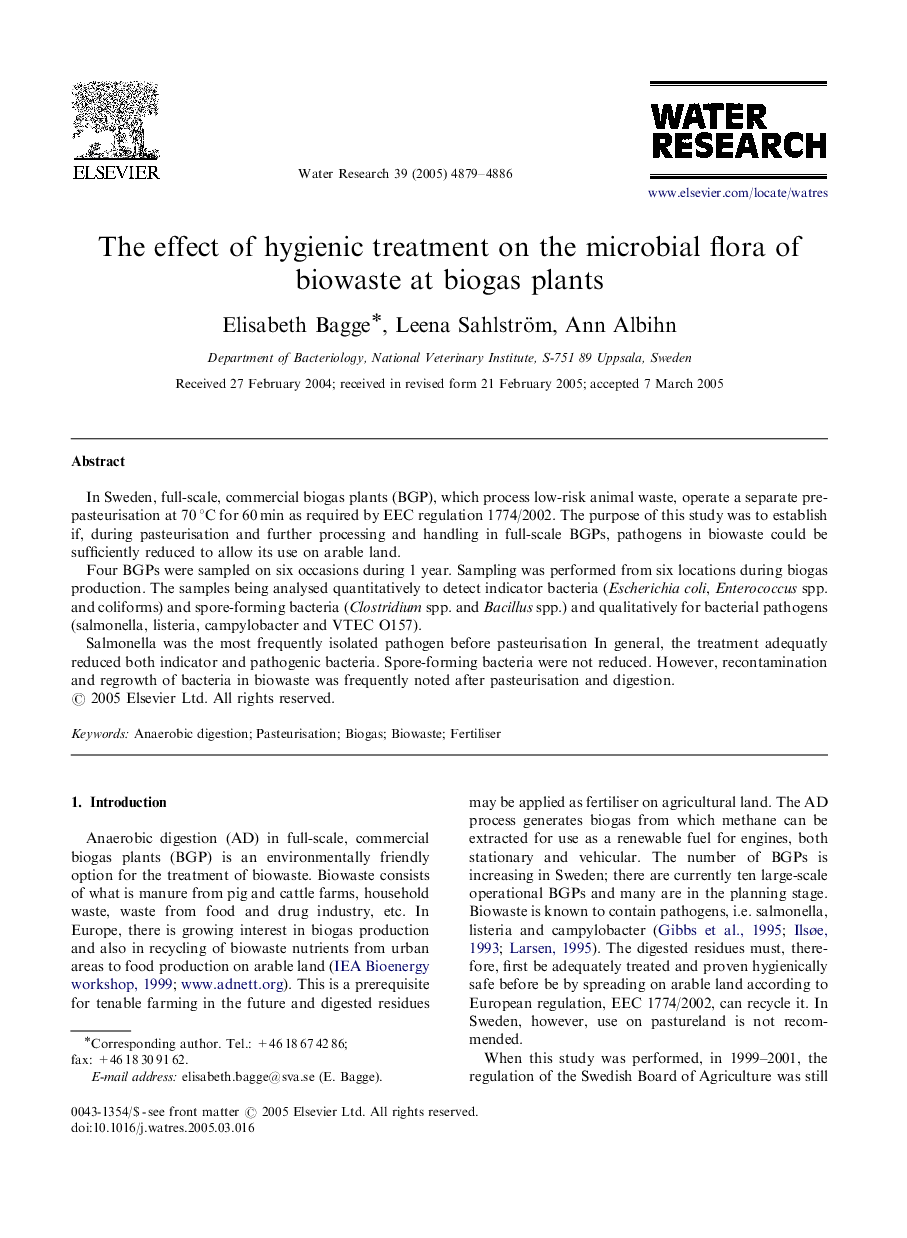| Article ID | Journal | Published Year | Pages | File Type |
|---|---|---|---|---|
| 4487461 | Water Research | 2005 | 8 Pages |
In Sweden, full-scale, commercial biogas plants (BGP), which process low-risk animal waste, operate a separate pre-pasteurisation at 70 °C for 60 min as required by EEC regulation 1774/2002. The purpose of this study was to establish if, during pasteurisation and further processing and handling in full-scale BGPs, pathogens in biowaste could be sufficiently reduced to allow its use on arable land.Four BGPs were sampled on six occasions during 1 year. Sampling was performed from six locations during biogas production. The samples being analysed quantitatively to detect indicator bacteria (Escherichia coli, Enterococcus spp. and coliforms) and spore-forming bacteria (Clostridium spp. and Bacillus spp.) and qualitatively for bacterial pathogens (salmonella, listeria, campylobacter and VTEC O157).Salmonella was the most frequently isolated pathogen before pasteurisation In general, the treatment adequatly reduced both indicator and pathogenic bacteria. Spore-forming bacteria were not reduced. However, recontamination and regrowth of bacteria in biowaste was frequently noted after pasteurisation and digestion.
